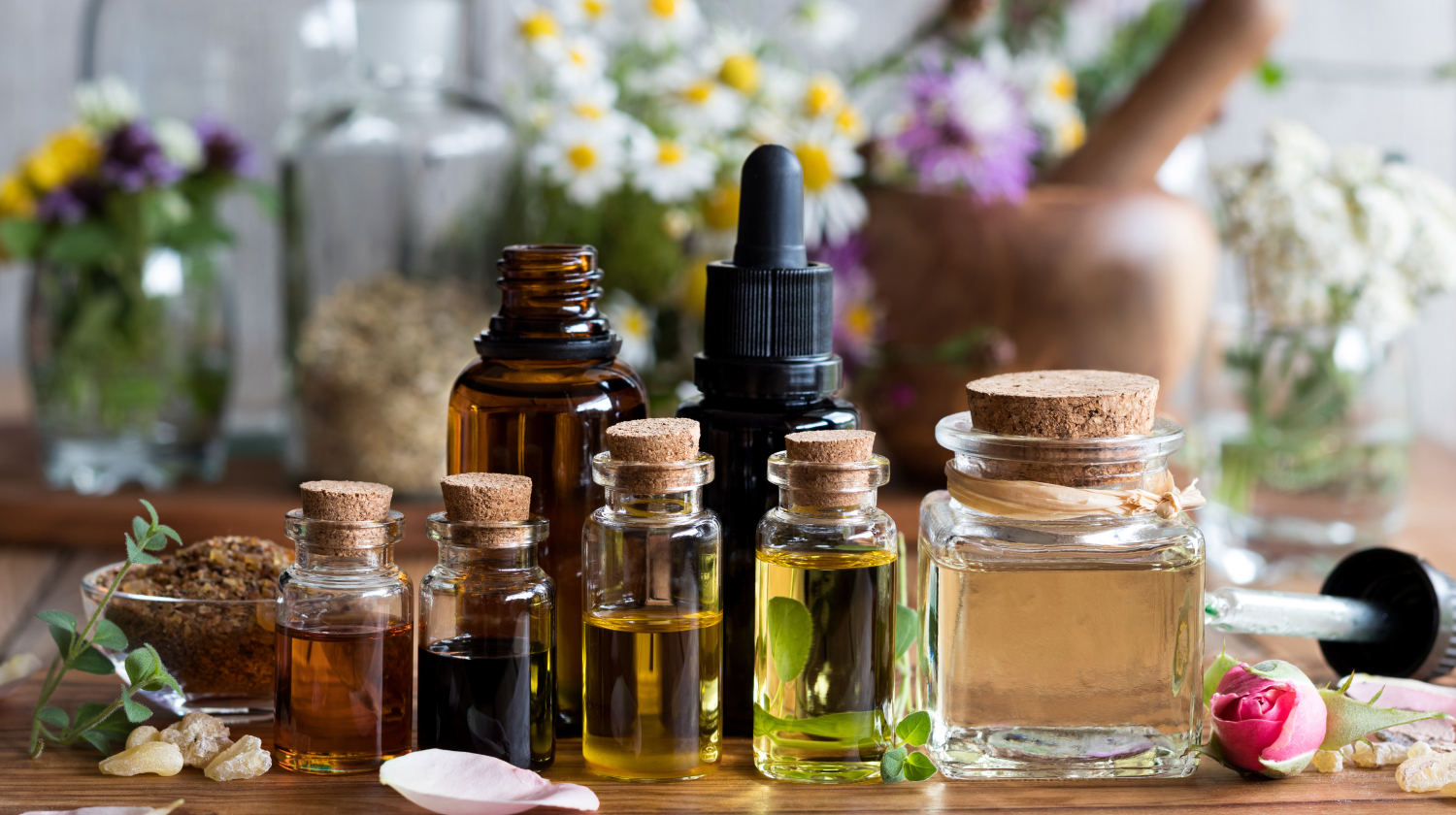Does Depression Make You Tired: Why And How To Cope 2024

Approximately 16% of people experience an episode of major depressive disorder[1] in their lifetime. People with depression often experience anxiety, which can increase depression severity and make completing daily activities nearly impossible. In 2019, the Global Burden of Diseases, Injuries, and Risk Factors Study identified depression and anxiety as the two most disabling mental disorders.[2]
Fatigue is associated with many medical conditions, like chronic fatigue syndrome, diabetes, and heart disease, and the disability caused by fatigue can result in tremendous suffering and financial loss. Does depression make you tired? Yes. Fatigue is a hallmark symptom of depression, and when depression and anxiety occur together, chronic exhaustion often develops. Lifestyle changes and natural remedies for anxiety and depression can help alleviate fatigue and reduce the burden.
Does Depression Make You Tired?
Yes, depression makes you tired. Fatigue is one of the hallmark symptoms of depression and results from many factors, including alterations in neurotransmitters, disruptions in circadian rhythms, systemic inflammation, increased anxiety and stress, and lifestyle factors like poor diet and lack of exercise. Natural remedies like essential oils and cannabidiol plus lifestyle changes like exercise, eating a balanced diet, practicing good sleep hygiene, mindfulness, and other relaxation exercises can enhance sleep quality and reduce fatigue.
What Is Depression?
Depression is a serious psychological disorder that affects more than 280 million people worldwide and is the leading cause of disability.[3] Depression risk is twice as high for women, and depression causes significant disruptions in people’s lives, often rendering them unable to work or engage with others. Depression is a complex disorder that results from the interplay of genetic, biological, and environmental factors. The World Health Organization offers this list of depression symptoms:[3]
- Feelings of sadness, irritability, or emptiness.
- Significant fatigue and/or low energy.
- Loss of pleasure or interest in activities.
- Concentration difficulties.
- Low self-worth.
- Excessive guilt.
- Hopelessness.
- Suicidal thoughts or preoccupation with death.
- Sleep disturbance.
- Alterations in appetite or weight.
If you experience two or more of these symptoms nearly daily, you may suffer from clinical depression. Consult a mental health professional for evaluation, as untreated or partially treated depression is a leading cause of suicide in people with depression.
The Differences Between Depression And Fatigue
Fatigue describes excessive sleepiness and low energy. More than everyday tiredness, fatigue can manifest in physical symptoms like muscle pain or body aches or mental symptoms like brain fog or difficulty focusing. If fatigue is persistent, it may be a symptom of an underlying medical or psychological condition.
Feeling fatigued doesn’t necessarily mean that you are depressed, but it can be a warning sign of depression. Fatigue in depression does not occur in isolation; other depression symptoms, like persistent low mood, loss of pleasure, low motivation, or hopelessness, accompany it. When combined with other symptoms of depression, fatigue can feel unmanageable and overwhelming.
Why Does Depression Make You Feel Tired?
Alterations In Neurotransmitters
Research has demonstrated that depression is associated with reductions in key neurotransmitters[4] like serotonin, norepinephrine, and gamma-aminobutyric acid, or GABA.[5] These alterations in brain chemistry can lead to fatigue because these brain neurotransmitters are involved in regulating sleep. Imbalances in serotonin and norepinephrine disrupt rapid eye movement sleep, while decreases in GABA leave the brain in an overactive state, leading to sleep disruption.
Disruptions In Circadian Rhythms
Circadian rhythms are the natural fluctuations that occur within the body over 24 hours. Bodily processes like temperature, hormone levels, appetite, and the sleep-wake cycle, reflect circadian rhythms. Depression disrupts circadian rhythms,[6] including the sleep-wake cycle, often resulting in a sleep disorder.
As many as 88% of people with depression experience insomnia.[7] Studies using polysomnography to measure brain wave patterns during sleep have shown that depression is associated with decreased sleep efficiency,[8] including difficulties falling asleep, staying asleep, and waking too early in the morning.
People with depression who fight daytime sleepiness after a full night’s rest may ask, “Does depression make you sleep more?” While insomnia is more common, hypersomnia, or sleeping too much, can also occur.
Systemic Inflammation
The immune system is vital for targeting infections and repairing injured tissue, but chronic stress sends this system into overdrive. Immune cells release proinflammatory cytokines, which start a cascade of reactions throughout the body, including widespread inflammation.
Studies have shown that people with depression and fatigue have elevated levels of cytokines.[9] There are several mechanisms by which inflammation may impact depression:
- Inflammatory cytokines can decrease neuroplasticity[10] by reducing the production of brain-derived neurotrophic factor, or BDNF.
- Disrupting the balance of neurotransmitters[11] implicated in depression, including serotonin[12] and dopamine.[13]
- Increasing glutamate release[14] disrupts neurotransmitter function at synapses and causes behavioral and cognitive dysfunction.
- Triggering overactivation of the brain’s stress response system[15] leads to chronically elevated stress hormones.
Increased Anxiety
Many people with depression also experience anxiety. A worldwide survey indicated that nearly half of the people with depression[16] had experienced an anxiety disorder. Chronic anxiety over-activates the body’s stress response system, causing increased stress hormones and inflammation, further increasing fatigue.
Lifestyle Factors
Depression can cause an intense loss of motivation. Things that you used to enjoy no longer please you, your energy is severely lacking, and planning to eat healthy foods takes too much effort. These symptoms can make it extremely difficult to take care of your physical health by eating nutritious foods and engaging in physical activity. Unfortunately, lack of exercise and poor diet can contribute to fatigue.
How To Cope With Fatigue Caused By Depression
People with depression and anxiety often have trouble falling and staying asleep. Lifestyle changes that can promote quality sleep and decrease chronic fatigue include:
- Exercise.
- Eating a balanced diet.
- Establishing healthy sleep habits.
- Incorporating natural remedies.
- Mindfulness meditation and relaxation exercises.
Exercise

Physical exercise is one of the best ways to enhance sleep quality[17] and manage depression-related fatigue. One study demonstrated that exercise programs reduced depression and fatigue[18] in adults undergoing hemodialysis. A meta-analysis of studies revealed that exercise was associated with increased sleep quality.[19]
Eat A Balanced Diet

Studies have shown that eating a balanced diet, including whole grains, vegetables, and foods high in omega-3 fatty acids, can reduce fatigue associated with inflammatory diseases.[20] Additionally, a low-fat, plant-based diet improved fatigue[21] for patients with multiple sclerosis. Deficiencies in a key nutrient, like magnesium, can trigger anxiety, so nourishing your body with vitamins and nutrient-rich foods can help other mental health conditions.
Practice Good Sleep Hygiene

Poor sleep can exacerbate the fatigue associated with depression. Good sleep hygiene can help you fall asleep faster and wake up refreshed. The Centers for Disease Control recommends the following steps to promote quality sleep:[22]
- Maintain a sleep routine with consistent sleep and wake times.
- Ensure that the sleep environment is dark, quiet, and at a comfortable temperature.
- Remove electronic devices from the bedroom.
- Avoid large meals, alcohol, and caffeine before bed.
- Exercise.
Natural Remedies

Essential oils are dynamic compounds derived from plants that are often used for regulating energy levels and improving sleep in people who are feeling depressed. Studies have shown that rosemary oil can improve sleep quality[23] in university students and that lavender oil relieves sleeplessness.[24] Essential oils can also decrease the body’s natural production of stress hormones and reduce inflammation, promoting better sleep. In studies, bergamot oil reduced cortisol levels[25] in healthy women, while sage oil decreased cortisol[26] in menopausal women.
CBD is a non-intoxicating compound found in the cannabis plant. CBD interacts with neurotransmitters to help regulate the sleep-wake cycle and has shown tremendous promise as a natural remedy for insomnia and excessive daytime sleepiness.[27] Multiple studies have shown that CBD also effectively reduces inflammation[28] and chronic pain.[29]
Mindfulness Meditation And Relaxation Exercises

A study of older adults with moderate sleep disturbances found that mindfulness meditation significantly improved sleep quality[30] and reduced fatigue and depression. Another study found that practicing mindfulness meditation improved sleep quality while reducing depression and anxiety[31] for perimenopausal women. Relaxation exercises like progressive muscle relaxation have been shown to improve sleep quality in older adults[32] and reduce fatigue for patients with chronic pulmonary obstructive disease.[33]
When To Get Professional Help
If you have tried these coping strategies but still cannot get a good night’s sleep or continue to experience chronic fatigue, it is time to seek professional help. Consult a healthcare provider to determine whether your symptoms are due to depression or another medical condition. Getting help from mental health professionals with experience in treating depression can help you learn strategies for regulating mood and building resilience for managing stressful life events.
The Takeaway
Fatigue is one of the most prominent and distressing symptoms of depression. Depression-related fatigue permeates every aspect of life and causes significant disability and suffering. In addition to seeking professional help when needed, lifestyle changes can help you get better sleep and reduce fatigue.
+ 33 sources
Health Canal avoids using tertiary references. We have strict sourcing guidelines and rely on peer-reviewed studies, academic researches from medical associations and institutions. To ensure the accuracy of articles in Health Canal, you can read more about the editorial process here
- Fang, H., Tu, S., Sheng, J. and Shao, A. (2019). Depression in sleep disturbance: A review on a bidirectional relationship, mechanisms and treatment. Journal of Cellular and Molecular Medicine, [online] 23(4), pp.2324–2332. doi:https://doi.org/10.1111/jcmm.14170.
- Santomauro, D.F., Herrera, A.M.M., Shadid, J., Zheng, P., Ashbaugh, C., Pigott, D.M., Abbafati, C., Adolph, C., Amlag, J.O., Aravkin, A.Y., Bang-Jensen, B.L., Bertolacci, G.J., Bloom, S.S., Castellano, R., Castro, E., Chakrabarti, S., Chattopadhyay, J., Cogen, R.M., Collins, J.K. and Dai, X. (2021). Global prevalence and burden of depressive and anxiety disorders in 204 countries and territories in 2020 due to the COVID-19 pandemic. The Lancet, [online] 398(10312), pp.1700–1712. doi:https://doi.org/10.1016/S0140-6736(21)02143-7.
- World (2023). Depressive disorder (depression). [online] Who.int. Available at: https://www.who.int/en/news-room/fact-sheets/detail/depression
- Makoto Naoi, Maruyama, W. and Masayo Shamoto-Nagai (2018). Type A monoamine oxidase and serotonin are coordinately involved in depressive disorders: from neurotransmitter imbalance to impaired neurogenesis. Journal of Neural Transmission, [online] 125(1), pp.53–66. doi:https://doi.org/10.1007/s00702-017-1709-8.
- Kate E.M. Godfrey, Gardner, A.C., Kwon, S., Chea, W. and Muthukumaraswamy, S.D. (2018). Differences in excitatory and inhibitory neurotransmitter levels between depressed patients and healthy controls: A systematic review and meta-analysis. Journal of Psychiatric Research, [online] 105, pp.33–44. doi:https://doi.org/10.1016/j.jpsychires.2018.08.015.
- Pandi-Perumal, S.R., Monti, J.M., Burman, D., Karthikeyan, R., BaHammam, A.S., Spence, D.J., Brown, G.M. and Meera Narashimhan (2020). Clarifying the role of sleep in depression: A narrative review. Psychiatry Research-neuroimaging, [online] 291, pp.113239–113239. doi:https://doi.org/10.1016/j.psychres.2020.113239.
- Murphy, M.P. and Peterson, M.W. (2015). Sleep Disturbances in Depression. Sleep Medicine Clinics, [online] 10(1), pp.17–23. doi:https://doi.org/10.1016/j.jsmc.2014.11.009.
- Dialogues in Clinical Neuroscience. (2022). Depression and sleep: pathophysiology and treatment. [online] Available at: https://www.tandfonline.com/doi/full/10.31887/DCNS.2006.8.2/mthase?scroll=top&needAccess=true&role=tab
- Felger, J.C. and Lotrich, F.E. (2013). Inflammatory cytokines in depression: Neurobiological mechanisms and therapeutic implications. Neuroscience, [online] 246, pp.199–229. doi:https://doi.org/10.1016/j.neuroscience.2013.04.060.
- Calabrese, F., Rossetti, A.O., Giorgio Racagni, Gass, P., Riva, M.A. and Molteni, R. (2014). Brain-derived neurotrophic factor: a bridge between inflammation and neuroplasticity. Frontiers in Cellular Neuroscience, [online] 8. doi:https://doi.org/10.3389/fncel.2014.00430.
- Catena-Dell’Osso, M., Rotella, F., Dell’Osso, A., Fagiolini, A. and Marazziti, D. (2013). Inflammation, Serotonin and Major Depression: Ingenta Connect. [online] Ingentaconnect.com. Available at: https://www.ingentaconnect.com/content/ben/cdt/2013/00000014/00000005/art00006
- Sperner-Unterweger, B., Kohl, C. and Fuchs, D. (2014). Immune changes and neurotransmitters: Possible interactions in depression? Progress in Neuro-psychopharmacology & Biological Psychiatry, [online] 48, pp.268–276. doi:https://doi.org/10.1016/j.pnpbp.2012.10.006.
- Felger, J.C. (2016). The Role of Dopamine in Inflammation-Associated Depression: Mechanisms and Therapeutic Implications. Current topics in behavioral neurosciences, [online] pp.199–219. doi:https://doi.org/10.1007/7854_2016_13.
- Haroon, E., Miller, A.H. and Sanacora, G. (2017). Inflammation, Glutamate, and Glia: A Trio of Trouble in Mood Disorders. Neuropsychopharmacology, [online] 42(1), pp.193–215. doi:https://doi.org/10.1038/npp.2016.199.
- Dooley, L.N., Kuhlman, K.R., Robles, T.F., Eisenberger, N.I., Craske, M.G. and Bower, J.E. (2018). The role of inflammation in core features of depression: Insights from paradigms using exogenously-induced inflammation. Neuroscience & Biobehavioral Reviews, [online] 94, pp.219–237. doi:https://doi.org/10.1016/j.neubiorev.2018.09.006.
- American Journal of Psychiatry. (2020). The Critical Relationship Between Anxiety and Depression. [online] Available at: https://ajp.psychiatryonline.org/doi/full/10.1176/appi.ajp.2020.20030305
- Kline, C.E. (2014). The Bidirectional Relationship Between Exercise and Sleep. American Journal of Lifestyle Medicine, [online] 8(6), pp.375–379. doi:https://doi.org/10.1177/1559827614544437.
- Song, Y., Hu, R., Diao Yongshu, Chen, L. and Jiang, X. (2018). Effects of Exercise Training on Restless Legs Syndrome, Depression, Sleep Quality, and Fatigue Among Hemodialysis Patients: A Systematic Review and Meta-analysis. Journal of Pain and Symptom Management, [online] 55(4), pp.1184–1195. doi:https://doi.org/10.1016/j.jpainsymman.2017.12.472.
- Kelley, G.A. and Kelley, K.S. (2017). Exercise and sleep: a systematic review of previous meta-analyses. Journal of Evidence-based Medicine, [online] 10(1), pp.26–36. doi:https://doi.org/10.1111/jebm.12236.
- Haß, U., Herpich, C. and Norman, K. (2019). Anti-Inflammatory Diets and Fatigue. Nutrients, [online] 11(10), pp.2315–2315. doi:https://doi.org/10.3390/nu11102315.
- Yadav, V., Marracci, G., Kim, E.S., Spain, R., Cameron, M., Overs, S., Riddehough, A., David K.B. Li, McDougall, J.G., Lovera, J., Murchison, C. and Bourdette, D. (2016). Low-fat, plant-based diet in multiple sclerosis: A randomized controlled trial. Multiple sclerosis and related disorders, [online] 9, pp.80–90. doi:https://doi.org/10.1016/j.msard.2016.07.001.
- CDC (2022). Tips for Better Sleep. [online] Centers for Disease Control and Prevention. Available at: https://www.cdc.gov/sleep/about_sleep/sleep_hygiene.html
- Pardis Nematollahi, Mitra Mehrabani, Fariba Sharififar and Fatemeh Dabaghzadeh (2018). Effects of Rosmarinus officinalis L. on memory performance, anxiety, depression, and sleep quality in university students: A randomized clinical trial. Complementary Therapies in Clinical Practice, [online] 30, pp.24–28. doi:https://doi.org/10.1016/j.ctcp.2017.11.004.
- Durmuş Çağrı Yıldırım, Vildan Kocatepe, Can, G., Ebru Sulu, Havva Kaya Akış, Gönül Şahin and Emel Güvey Aktay (2020). The Effect of Lavender Oil on Sleep Quality and Vital Signs in Palliative Care: A Randomized Clinical Trial. Complementary Medicine Research, [online] 27(5), pp.328–335. doi:https://doi.org/10.1159/000507319.
- Watanabe, E., Kuchta, K., Kimura, M., HW Rauwald, Kamei, T. and Jiro Imanishi (2015). Effects of Bergamot (Citrus bergamia (Risso) Wright & Arn.) Essential Oil Aromatherapy on Mood States, Parasympathetic Nervous System Activity, and Salivary Cortisol Levels in 41 Healthy Females. Complementary Medicine Research, [online] 22(1), pp.43–49. doi:https://doi.org/10.1159/000380989.
- Sender Herschorn, Eun Ju Cho and Kang, Y.-S. (2014). Changes in 5-hydroxytryptamine and Cortisol Plasma Levels in Menopausal Women After Inhalation of Clary Sage Oil. Phytotherapy Research, [online] 28(11), pp.1599–1605. doi:https://doi.org/10.1002/ptr.5163.
- Babson, K.A., Sottile, J.M. and Morabito, D.M. (2017). Cannabis, Cannabinoids, and Sleep: a Review of the Literature. Current Psychiatry Reports, [online] 19(4). doi:https://doi.org/10.1007/s11920-017-0775-9.
- Burstein, S. (2015). Cannabidiol (CBD) and its analogs: a review of their effects on inflammation. Bioorganic & Medicinal Chemistry, [online] 23(7), pp.1377–1385. doi:https://doi.org/10.1016/j.bmc.2015.01.059.
- Urits, I., Gress, K., Charipova, K., Habib, K., Lee, D.J., Lee, C.S., Jung, J.E., Kassem, H., Cornett, E.M., Paladini, A., Giustino Varrassi, Kaye, A.D. and Viswanath, O. (2020). Use of cannabidiol (CBD) for the treatment of chronic pain. Best Practice & Research Clinical Anaesthesiology, [online] 34(3), pp.463–477. doi:https://doi.org/10.1016/j.bpa.2020.06.004.
- David StC. Black, O’Reilly, G., Olmstead, R.G., Breen, E.C. and Irwin, M.R. (2015). Mindfulness meditation and improvement in sleep quality and daytime impairment among older adults with sleep disturbances: a randomized clinical trial. JAMA Internal Medicine, [online] 175(4), pp.494–501. doi:https://doi.org/10.1001/jamainternmed.2014.8081.
- Europe PMC (2016). Europe PMC. [online] Europepmc.org. Available at: https://europepmc.org/article/med/31511223
- Sun, J., Kang, J., Wang, P. and Zeng, H. (2013). Self-relaxation training can improve sleep quality and cognitive functions in the older: a one-year randomised controlled trial. Journal of Clinical Nursing, [online] 22(9-10), pp.1270–1280. doi:https://doi.org/10.1111/jocn.12096.
- Pooya Seyedi Chegeni, Mohammad Reza Gholami, Alireza Azargoon, Amir, Mehdi Birjandi and H. Norollahi (2018). The effect of progressive muscle relaxation on the management of fatigue and quality of sleep in patients with chronic obstructive pulmonary disease: A randomized controlled clinical trial. Complementary Therapies in Clinical Practice, [online] 31, pp.64–70. doi:https://doi.org/10.1016/j.ctcp.2018.01.010.



